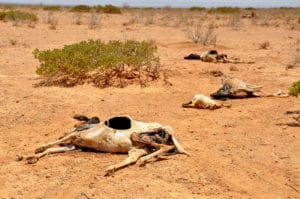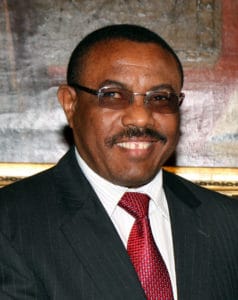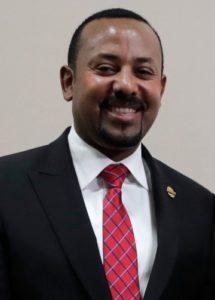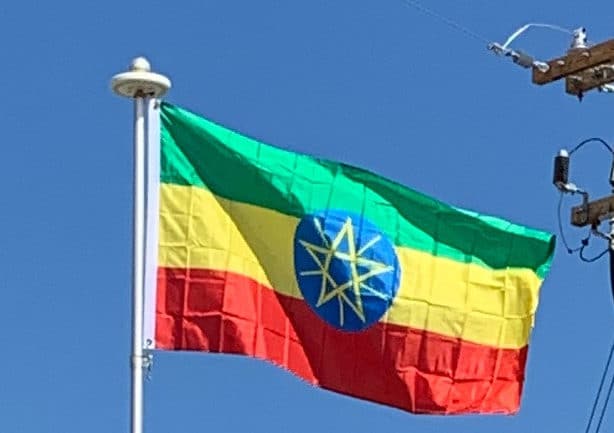A coalition of opposition parties and some individuals was established in 2009 to oust the government of the EPRDF in legislative elections of 2010. Meles’ party, which has been in power since 1991, published its 65-page manifesto in Addis Ababa on 10 October 2009. The opposition won most votes in Addis Ababa, but the EPRDF halted counting of votes for several days. After it ensued, it claimed the election, amidst charges of fraud and intimidation.
In mid-2011, two consecutively missed rainy seasons precipitated the worst drought in East Africa seen in 60 years. Full recovery from the drought’s effects did not occur until 2012, with long-term strategies by the national government in conjunction with development agencies believed to offer the most sustainable results.

Meles died on 20 August 2012 in Brussels, where he was being treated for an unspecified illness. Deputy Prime Minister Hailemariam Desalegn was appointed as a new prime minister until the 2015 elections, and remained so afterwards with his party in control of every parliamentary seat.
Protests broke out across the country on 5 August 2016 and dozens of protesters were subsequently shot and killed by police. The protesters demanded an end to human rights abuses, the release of political prisoners, a fairer redistribution of the wealth generated by over a decade of economic growth, and a return of Wolqayt District to the Amhara Region. The events were the most violent crackdown against protesters in Sub-Saharan Africa since the Ethiopian government killed at least 75 people during protests in the Oromia Region in November and December 2015. Following these protests, Ethiopia declared a state of emergency on 6 October 2016. The state of emergency was lifted in August 2017.

On 16 February 2018, the government of Ethiopia declared a six-month nationwide state of emergency following the resignation of Prime Minister Hailemariam Desalegn. Hailemariam is the first ruler in modern Ethiopian history to step down; previous leaders have died in office or been overthrown. He said he wanted to clear the way for reforms.
Government Reforms (2018–present):
The new Prime Minister was Abiy Ahmed, who made a historic visit to Eritrea in 2018, ending the state of conflict between the countries. For his efforts in ending the 20-year-long war between Ethiopia and Eritrea Abiy Ahmed was awarded with the Nobel prize for peace in 2019. Since taking office in April 2018, 42-year-old Abiy has also released political prisoners, promised fair elections for 2019 and announced sweeping economic reforms. As of 6 June 2019, all the previously censored websites were made accessible again, over a thousand political prisoners were released and hundreds of administrative staff were fired as part of the reforms.

Ethnic violence rose with the political unrest. There were Oromo–Somali clashes between the Oromo, who make up the largest ethnic group in the country, and the ethnic Somalis, leading to up to 400,000 have been displaced in 2017. Gedeo–Oromo clashes between the Oromo and the Gedeo people in the south of the country led to Ethiopia having the largest number of people to flee their homes in the world in 2018, with 1.4 million newly displaced people. In September 2018 in the minorities protest that took place in Oromo near the Ethiopian capital Addis Ababa, 23 people were killed. Some have blamed the rise in ethnic violence by the Oromo on the new Oromo Prime Minister Abiy Ahmed for giving space to groups formerly banned by previous Tigrayan-led governments, such as the Oromo Liberation Front.
Geography:
At 1,104,300 square kilometers (426,372.61 sq mi), Ethiopia is the world’s 28th-largest country, comparable in size to Bolivia.
